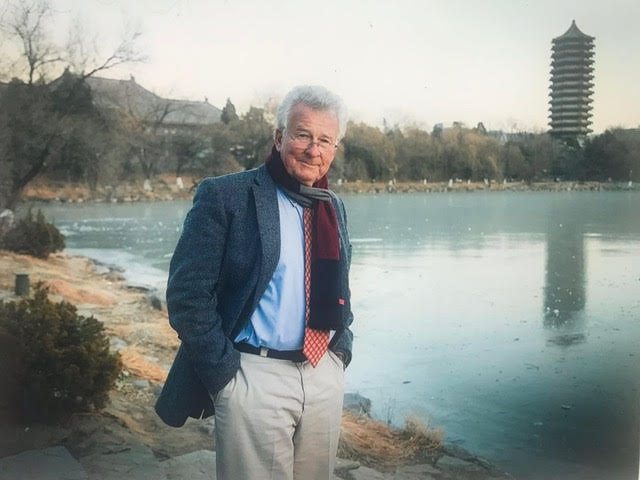You are here
- Home
- Distinguished Speaker Series: China and the shaping of its own modernity
Distinguished Speaker Series: China and the shaping of its own modernity
- Dates
- Thursday, May 11, 2023 - 15:30 to 16:30
- Location
- Online - Zoom
- ContactDr Mirjam Hauck (series convenor)
Please join us for this joint talk from the OU Online Confucius Institute and the Open Centre for Languages and Cultures (OCLC) as we celebrate the first anniversary of the OU's Online Confucius Institute.
We are delighted to welcome back Professor Roger T. Ames to discuss the shaping of Chinese modernity through linguistic and cultural translation.
It has been the capacity of Confucian culture over the millennia to absorb into itself culture from the periphery that has made it a vibrant tradition. Beginning with the first wave of Western learning, Buddhism, and down to the present day, foreign cultures have transformed Confucianism, and Confucianism has created its own version of foreign cultures.
As a most recent example, Professor Ames argues that China is only now, two decades into the 21st Century, beginning to produce its own indigenous modernity. Beginning in the second half of the 19th Century, China along with the other East-Asian cultures, enamoured of and overwhelmed by Western modernity, constructed a new conceptual vocabulary that would enable these traditions to synchronize their own cultural past and aspirations for the future with a foreign language of modernity. The structures and curricula of Western education were imported wholesale into the East-Asian academy, allowing Asian scholars access to the apparatus of new knowledge production, but at a cost to their own identity.
The consequences of this effort are still with us as Western modernity continues to be the language through which East-Asian traditions are conceptualized and theorized not simply abroad, but within their own academy. But like Buddhism before it, Western modernity is becoming a Chinese modernity. And perhaps the most interesting phenomenon is that within the contemporary Western narrative with “God is Dead” as a signpost, the process language being developed to replace its now discredited transcendent universalism is in important degree resonant with the vocabulary of Confucian philosophy.
Register for 'China and the shaping of its own modernity' on Eventbrite.
About the speaker
 Roger T. Ames 安樂哲 is Humanities Chair Professor at Peking University, Academic Director of the Peking University Berggruen Research Center, and Professor Emeritus of Philosophy at the University of Hawai’i. He is former editor of Philosophy East & West and founding editor of China Review International.
Roger T. Ames 安樂哲 is Humanities Chair Professor at Peking University, Academic Director of the Peking University Berggruen Research Center, and Professor Emeritus of Philosophy at the University of Hawai’i. He is former editor of Philosophy East & West and founding editor of China Review International.
Ames has authored several interpretative studies of Chinese philosophy and culture, and his publications also include translations of the Chinese philosophical classics. His most recent monograph is Human Becomings: Theorizing ‘Persons’ for Confucian Role Ethics (2021). He has most recently compiled the new Sourcebook in Classical Confucian Philosophy with its companion A Conceptual Lexicon for Classical Confucian Philosophy, and in writing articles promoting a conversation between pragmatism and Confucian philosophy.